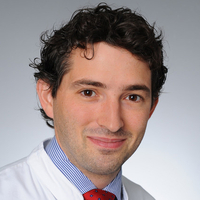Immune checkpoint inhibition (CKI) demonstrated remarkable efficacy in several kinds of cancer, representing a major breakthrough in cancer therapy. These therapies are unique, as the primary target is not the tumor cell itself, but the crosstalk between immune cells and cancer cells in the tumor microenvironment. We described a negative prognostic impact of PD-L1 expression on tumor cells in esophago-gastric adenocarcinoma (GC) and CKI is effective in metastatic disease. Interestingly, efficacy of CKI is often not limited to patients with expression of the relevant protein on tumor cells. Recent publications demonstrate that expression of PD-L1 on tumor-infiltrating lymphocytes and tumor cells are of similar importance for immune escape, which explains treatment response in patients with PD-L1 negative tumors. Despite the promising results of early studies, only a minor fraction of patients responds to CKI. Preexisting endogenous immune responses seem to be crucial for immune checkpoint inhibition. A successful immune recognition depends on a broad spectrum of immune-related tumor cell intrinsic or extrinsic aspects and can so far only be predicted partially by very few markers (e.g. mutational burden, PD-L1 expression). Hence, multidimensional analyses of tumor immunogenicity including the immune infiltrate, private and shared tumor antigens, tumor specific immune response and immune escape are crucial to further improve therapeutic efficacy and translational research for this novel aspect of cancer therapy.
We aim to decipher endogenous tumor-specific immune response with a clear focus on GI Cancer. Detailed analyses of endogenous immune response against private and shared antigens will be performed using genomic and functional analyses in preclinical models, untreated tumor samples and patients receiving immune checkpoint inhibition.
Our research has immediate translational relevance as endogenous immune response is probably the most relevant factor determining success or failure of emerging immunotherapies. Taken together, our analyses hopefully contribute to an implementation of immunotherapy into treatment algorithms of gastrointestinal cancer, improve translational analyses and support a tailored design of future clinical trials. This could be of similar relevance to cancers of different origins.
Lechner, A., Schlosser, H.A., Thelen, M., Wennhold, K., Rothschild, S.I., Gilles, R., Quaas, A., Siefer, O.G., Huebbers, C.U., Cukuroglu, E., Goke, J., Hillmer, A., Gathof, B., Meyer, M.F., Klussmann, J.P., Shimabukuro-Vornhagen, A., Theurich, S., Beutner, D., and von Bergwelt-Baildon, M. (2019). Tumor-associated B cells and humoral immune response in head and neck squamous cell carcinoma. Oncoimmunology 8, 1535293.
Schlosser, H.A., Thelen, M., Lechner, A., Wennhold, K., Garcia-Marquez, M.A., Rothschild, S.I., Staib, E., Zander, T., Beutner, D., Gathof, B., Gilles, R., Cukuroglu, E., Goke, J., Shimabukuro-Vornhagen, A., Drebber, U., Quaas, A., Bruns, C.J., Holscher, A.H., and Von Bergwelt-Baildon, M.S. (2019). B cells in esophago-gastric adenocarcinoma are highly differentiated, organize in tertiary lymphoid structures and produce tumor-specific antibodies. Oncoimmunology 8, e1512458.
Meder L, Schuldt P, Thelen M, Schmitt A, Dietlein F, Klein S, Borchmann S, Wennhold K, Vlasic I, Oberbeck S, Riedel R, Florin A, Golfmann K, Schlosser HA, Odenthal M, Buttner R, Wolf J, Hallek M, Herling M, von Bergwelt-Baildon M, Reinhardt HC, and Ullrich RT (2018). Combined VEGF and PD-L1 blockade displays synergistic treatment effects in an autochthonous mouse model of small cell lung cancer. Cancer Res10.1158/0008-5472.CAN-17-2176.
Schlosser HA, Thelen M, Lechner A, Wennhold K, Garcia-Marquez MA, Rothschild SI, Staib E, Zander T, Beutner D, Gathof B, Gilles R, Cukuroglu E, Goke J, Shimabukuro-Vornhagen A, Drebber U, Quaas A, Bruns CJ, Holscher AH, and Von Bergwelt-Baildon MS (2019). B cells in esophago-gastric adenocarcinoma are highly differentiated, organize in tertiary lymphoid structures and produce tumor-specific antibodies. Oncoimmunology 8, e1512458.
Rothschild U, Muller L, Lechner A, Schlosser HA, Beutner D, Laubli H, Zippelius A, and Rothschild SI (2018). Immunotherapy in head and neck cancer - scientific rationale, current treatment options and future directions. Swiss Med Wkly 148, w14625.
Information from this funding period will not be updated anymore. New research related information is available here.
Tumor-specific endogenous immune response and immune escape in gastrointestinal Cancer

Center for Molecular Medicine Cologne | Clinic of General, Visceral, Tumor and Transplantation Surgery | CMMC Research Building
CMMC - PI - CAP 12
hans.schloesser[at]uk-koeln.de
show more…+49 221 478 89612
+49 221 478 4833
Center for Molecular Medicine Cologne | Clinic of General, Visceral, Tumor and Transplantation Surgery | CMMC Research Building
Robert-Koch-Str. 21
50931 Köln
https://viszeral-tumorchirurgie.uk-koeln.de/forschung/molekulare-onkologie/tumorimmunologie/
Kerstin Wennhold (PostDoc)
Maria Garcia-Marquez (PostDoc)
Martin Thelen (PhD student)
Elena Staib (MD Student)
Alexandra Kryscio (Master student)
Rabi Raj Datta (MD, clinical associate)
Philipp Gödel (MD, clinical associate)
Sibylle Mellinghoff (MD, clinical associate)
Katharina Leuchte (MD, clinical associate)
Isabel Garcia-Marquez (Technician)
Pauline Volkmar (Technician)
Sabrina Reuter (Technician)